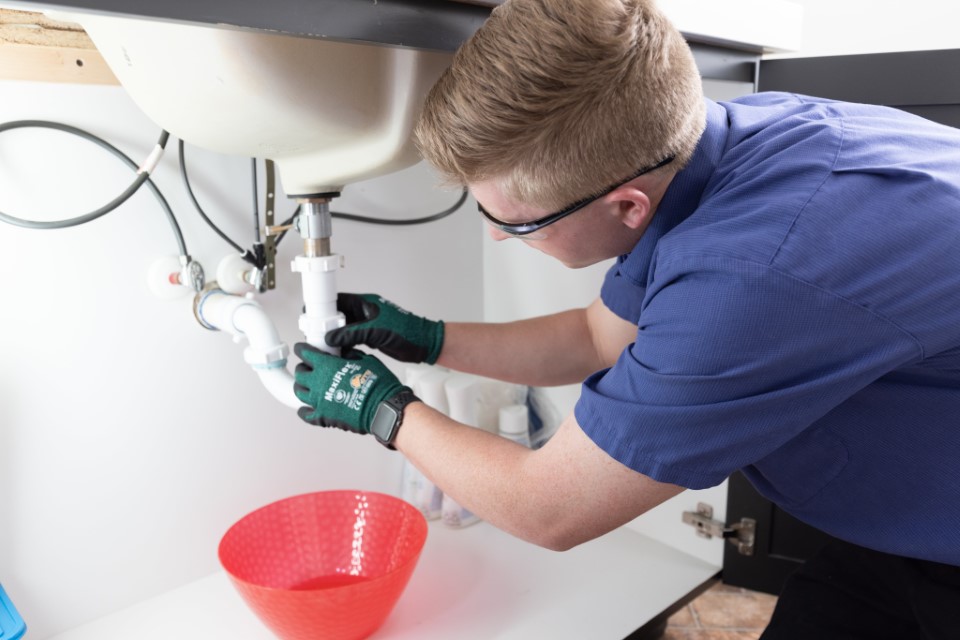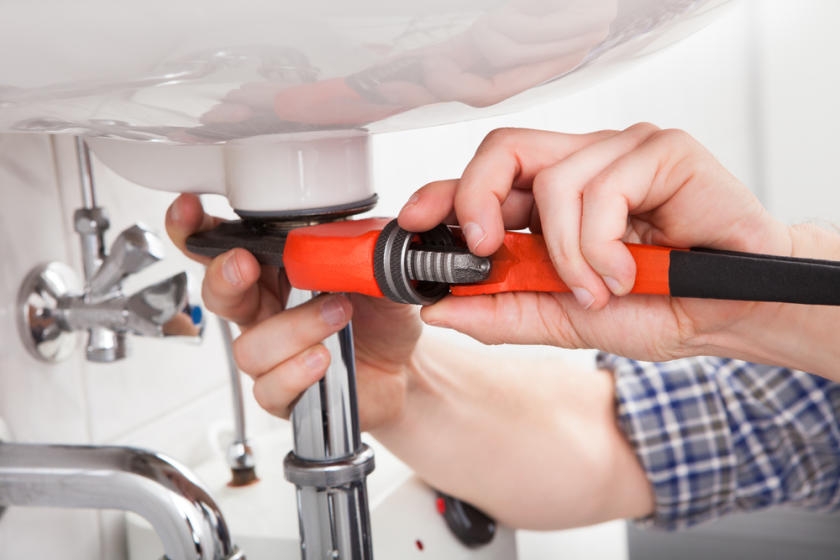Immediate Fixes for Plumbing Emergencies: What to Do Until Support Arrives
BookPresented here further down you'll find more amazing facts about What to Do While Waiting for an Emergency Plumber.

Pipes emergency situations can strike at any moment, causing stress and possible damages to your home. Whether it's a ruptured pipeline, a stopped up drain, or a leaky tap, understanding how to manage the scenario up until a professional plumber shows up can conserve you from additional problems. This article gives necessary emergency pipes ideas to help you minimize damages and restore control throughout a pipes crisis.
Switch off the Water System
The first step in any kind of plumbing emergency is to shut down the supply of water. For local problems, such as a leaking tap or toilet, switch off the valve near the component. When it comes to a significant leak or ruptured pipe, situate your home's primary water shut-off shutoff and turn it off immediately. Recognizing the location of these shutoffs in advance can conserve important time throughout an emergency.
Shut down Your Water Heater
In particular emergencies, such as a ruptured pipe, it's important to turn off your hot water heater. This avoids getting too hot or damage to the device when water stops streaming. Turn off the power supply to the water heater (electric or gas) and allow it cool off to avoid potential hazards.
Temporarily Quit a Burst Pipeline
A burst pipeline can cause significant water damages in minutes. To reduce the concern:
Call a specialist plumbing immediately to deal with the issue completely.
Have an Emergency Plumbing Kit
Prepare a fundamental pipes emergency situation kit to deal with small concerns effectively. Your set must consist of:
Having these tools available can make a substantial distinction in your ability to manage emergencies.
Unclog Drains Pipes Securely.
A clogged up drainpipe can be a frustrating and messy problem. Right here's exactly how to tackle it:.
If these methods don't work, prevent utilizing too much pressure, as it might get worse the blockage.
Manage Overflowing Toilets.
An overruning commode can create prompt turmoil. Right here's what you must do:.
Address Small Leakages with Short-lived Repairs.
Small leakages can swiftly end up being significant troubles if left untreated. Utilize these temporary solutions up until professional aid shows up:.
While these solutions aren't long-term, they can help reduce water loss and damages.
Manage Frozen Water Lines Thoroughly.
In chillier climates, frozen pipelines are an usual emergency situation. If you presume a frozen pipeline:.
Know When to Call an Expert.
While quick fixes can aid temporarily, particular plumbing problems call for immediate expert attention. Call a plumbing technician if:.
Promptly contacting a professional makes sure the concern is dealt with properly and protects against further issues.
Protect against Further Damage.
Taking quick activity to decrease damages can save you time and money over time. Below's how:.
Conclusion.
Plumbing emergency situations can be frustrating, yet with the best understanding and devices, you can take care of the situation efficiently up until aid gets here. By turning off the supply of water, attending to tiny leakages, and using temporary repairs, you can reduce damages and maintain your home safe. Bear in mind, these tips are temporary services; always speak with a certified plumbing to deal with the source of the problem. Preparation and quick reasoning are your ideal allies in any kind of pipes emergency situation.
Expert Tips for Emergency Plumbing Repairs
Plumbing emergencies can be incredibly stressful and inconvenient. Whether it’s a burst pipe, a clogged drain, or a leaky faucet, these common plumbing emergencies need immediate attention to prevent further damage to your home. But before you panic, it’s important to understand the basics of plumbing repairs and the steps you can take to address these emergencies. In this article, we will share some expert tips to help you navigate through these situations and minimize potential water damage.
Identifying Common Plumbing Emergencies
Leaky pipes and faucets Clogged drains and toilets Burst pipes Low water pressure Water heater problems Essential Tools for Plumbing Repairs
Plunger: Useful for unclogging toilets and drains Adjustable wrench: Needed for tightening or loosening nuts and bolts Pipe wrench: Ideal for gripping and turning pipes Tape measure: Necessary for accurate pipe measurements Plumber’s tape: Helps create watertight seals Understanding Emergency Plumbing Services
Emergency plumbing services are designed to provide immediate assistance for unexpected plumbing issues that can cause significant damage to your home, business, or health. These services are typically available 24/7 and are staffed by experienced plumbers who can quickly diagnose and repair a wide range of plumbing problems.
When a plumbing emergency strikes, time is of the essence. Whether it’s a burst pipe flooding your basement or a gas leak posing a serious risk, emergency plumbing services ensure that help is just a phone call away. These professionals are equipped with the tools and expertise to handle any situation, minimizing damage and restoring your plumbing system to proper working order.
What Constitutes a Plumbing Emergency?
Burst pipes or water supply lines: These can cause extensive water damage and need immediate repair to prevent flooding. Gas leaks or suspected gas leaks: Gas leaks are extremely dangerous and require prompt attention to avoid potential explosions or health hazards. Sewer backups or overflows: These can lead to unsanitary conditions and significant property damage. Clogged drains or toilets causing water to overflow: Overflowing water can damage floors, walls, and other structures. Leaks or water damage causing structural damage: Persistent leaks can weaken the structural integrity of your home or business. No hot water or heating: A lack of hot water can be more than an inconvenience, especially in colder months. Common Causes of Plumbing Emergencies
Aging or corroded pipes: Over time, pipes can deteriorate, leading to leaks or bursts. Improperly installed or maintained plumbing fixtures: Faulty installations or lack of maintenance can result in unexpected failures. Tree roots or other debris infiltrating your sewer line: Roots can grow into pipes, causing blockages and backups. Frozen pipes or water supply lines: In colder climates, pipes can freeze and burst, leading to significant water damage. High water pressure or sudden changes in water pressure: Excessive pressure can strain pipes and fixtures, causing them to fail. Natural disasters such as floods or earthquakes: These events can disrupt your plumbing system and cause severe damage. Steps to Minimize Water Damage
Locate the water shut-off valve: Knowing where the valve is can help you quickly cut off the water supply to the affected area. Turn off the water heater: If there’s a risk of water coming into contact with the heating element, make sure to turn off the water heater to avoid potential accidents. Open faucets and drain pipes: By opening faucets and drain pipes, you can relieve pressure and empty any standing water. Collect and contain water: Use towels, buckets, or bins to collect water and prevent it from spreading to other areas of your home. https://leecountyplumbingandwellservice.com/expert-tips-for-emergency-plumbing-repairs/

Do you really like more info about Expert Tips for Emergency Plumbing Repairs? Place a remark directly below. We'd be glad to hear your suggestions about this blog posting. Hoping that you visit us again soon. Enjoyed reading our posting? Please share it. Let somebody else find it. Thank-you for taking the time to read it.
Book